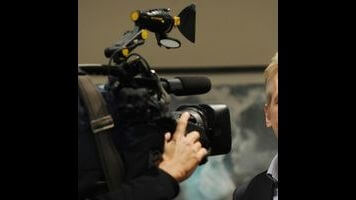What is the role of journalism? For years, the default answer has seemed to be to present both sides of a story, and let the reader or viewer decide which was more compelling. But it turned out there was a hack for that. If one “side” of the issue is detached from reality, it can still be treated as equals. And, if that side becomes associated with a political party, or rather, a set of beliefs associated with roughly half of the political spectrum, then people will join out of association—especially if the previously fringe belief is funded well enough to get that message out.
“Climate Of Doubt” opens by describing the apparent political, social, and scientific consensus about climate change between 2007 and 2009. An Inconvenient Truth was a hit, the major party presidential candidates and several other prominent politicians from both sides of the aisle claimed it was a major issue, and a major international report presented human-caused climate change as a sobering fact. But Frontline does a good job of showing how An Inconvenient Truth associated Al Gore with the climate change discussion, and from there, it became a Democrat versus Republican issue. Despite 97 percent of scientists agreeing about climate change's reality, suddenly it was a hot-button issue.
The denialists that Frontline focuses on are entirely clear about this. They seem totally comfortable with the political side of their argument, acknowledging that Al Gore becoming the face of climate change science helped them tremendously, and grinning happily as they talk about their success in bringing the Republican party to their side, while cowing the Democrats. One says that they've achieved their success with people who work with their hands: “I think we've won with… people who have a closer relationship to tangible reality.”
Journalist John Hockenberry doesn't mess around with the false equivalency that presents climate change belief and skepticism as equally valid ontological concepts. He seems to give the “skeptics” a fair chance to express their views, but he presses them for reasons why, and is quick to cite facts, both directly and via narration, in opposition to denialist conventional wisdom. For example, he describes how “Climategate” (ugh) built denialist confidence and popular support, but with this description: “A few suspicious emails taken out of context would become 'Climategate.' Even though nine subsequent investigations would find no tampering with data.” A section where the “10-year cooling pattern” commonly cited by denialists is debunked by showing a hundred-year graph with half a dozen “cooling decades” throughout—but steadily rising temperatures overall—is a fantastic visual.
But Hockenberry doesn't have to work that hard. He asks two North Carolina state senators who've sponsored legislation to remove climate change from consideration in waterfront planning why they believe what they believe. Their answers are remarkably similar: “I rely on whatever science makes good sense,” and “I'm just coming at it from a common sense standpoint.” But that's not how science works! You don't get to pick and choose according to what sounds congruent with your already-existing beliefs. That's not “science.” That's not “skepticism.” It's ideology, and it's a relativistic ideology where everyone's opinions are equal, regardless of application in the real world (and exactly the sort of “relativism” that conservatives often claim liberal arts college educations teach). Perhaps the best moment comes when a Republican House representative attempts to deflect the idea that 97 percent of scientists believe in global warming by virtually quoting The Big Lebowski's “that's just, like, their opinion, man.”
Perhaps “Climate Of Doubt” giving the denialists enough rope to hang themselves with instead of confronting them was the best way to maintain “journalistic objectivity,” but I do think it might have been better served by being even more direct, particularly in countering claims of skepticism. In a section on the funding of denialist organizations, “Climate Of Doubt” talks about the Koch brothers' influence over the movement. But the episode oddly doesn't take the time to mention the Berkeley Earth Surface Temperature project, in which a vocal skeptic was given the opportunity to do a full scientific study, funded by the Koch brothers, and concluded that human-induced warming was real. “Skepticism” involves weighing evidence, not simply dismissing it.
And yet the denialists have the upper hand, with one of the presidential candidates turning belief into climate change into a laugh line, and the other barely mentioning it. Perhaps the most unintentionally sad moment in “Climate Of Doubt” comes when a climate scientist who'd been interviewed by the New York Times describes how he was immediately slapped with a Freedom Of Information Act by a denialist group, hoping to get lucky and find another “Climategate” (ugh). He doesn't want to be cowed, but his quote—“As a climate scientist, I think a lot about the future; it goes with the job. And I want to make sure that in 50 years, or a hundred years, or 200 years, nobody can ever say we didn't warn them”—indicates how skeptical he is of achieving positive change on the subject. This is a state of affairs caused by bad journalism—and one that “Climate Of Doubt,” perhaps too late, attempts to resolve.
Stray observations:
- And with that, we are ending our regular coverage of Frontline. We hope you have enjoyed these reviews, and we will drop in on the occasional episode in the future.


 Keep scrolling for more great stories.
Keep scrolling for more great stories.